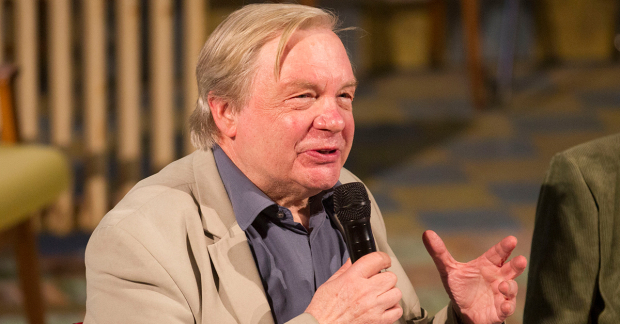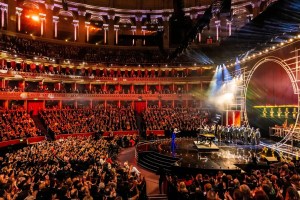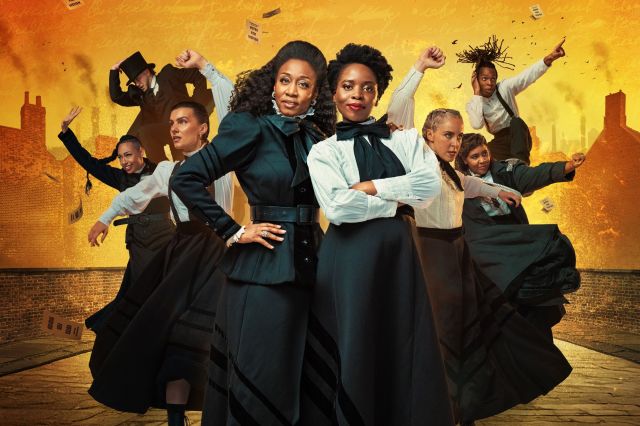Michael Billington's successors are going to have to fight hard to preserve his legacy in the modern age
Sarah Crompton reacts to Michael Billington’s conversation at the National Theatre

© Dan Wooller for WhatsOnStage
It was a huge tribute to the respect – and affection – in which The Guardian's former chief theatre critic Michael Billington is held that the Lyttelton Theatre should be packed with people at a Platform event to mark his retirement after almost 50 years in the job.
The audience was full of people who had known and liked him during that long career; but also those just curious to know what had kept him going out to take his seat in the dark four nights a week. Because although he was The Guardian's critic from 1971 his theatre-going life began long before at the age of eight, and virtually every significant performance in British – and indeed world – theatre has passed in front of his eyes. It would account for 27 years of his 80-year-life, if you ran the nights end to end.
In a further tribute to his eminence, he was quizzed (rather well) by Rufus Norris, artistic director of the National Theatre, and joined on stage by actors reading from plays that had formed significant milestones in his long career: Aisling Loftus reincarnated her role as Queenie from Small Island; Simon Russell Beale and Penelope Wilton acted a scene from Harold Pinter's Betrayal (a play Billington admits he got crushingly wrong when it premiered in 1978); Russell Beale and Oliver Ford Davies wonderfully conjured up a scene from David Hare's Racing Demon, a play that fulfils Billington's recipe for a great play in that it perfectly combines the public and the personal, and a scene that made you long to see it again.
Ford Davies, who performed with Billington at university, confirmed that he was no actor – but revealed that Ken Loach, who was in the same production of Bartholomew Fair, had hidden comic gifts. Billington reminisced about plays he has seen – a musical version of Tom Browne's School Days featuring flamenco was a low point, Paul Scofield's 1962 King Lear a high one – and the changes he has witnessed over his long theatre-going life.
He explained why critics get things wrong – particularly when confronted with the truly radical, like Beckett or like Sarah Kane's Blasted. "The more the artist is experimenting or doing something new or breaking new ground the less likely the critics are to understand it on first acquaintance." He also made a vigorous defence of the role of the critic, which he does not see as dying, merely evolving. "I believe artists as well as audiences need critics," he said.
It was a lovely hour, encouraging and inspiring to those of us who spend so much of our time watching plays unfold and thinking about their meaning and their effects. The fact that it was hosted by the National which – god knows – has in its time has suffered more critical barbs than any other institution, was in itself an assertion of the importance of the critic in theatre's complicated and often perilous ecology.
The truth is, however, that the role of the critic is under threat in the modern age, not so much because everyone thinks they are one, but because at a time when internet metrics apparently measure every part of our lives, it's easy to ignore the incalculable influence that the conversation between critic, audience and artist has. If everything is weighed by simple numbers, a report of a ground-breaking production in Nottingham is always going to come off worse than the match report of Real Madrid and Manchester City. Yet in the end, the production in Nottingham might have more impact on society.
A specialised website such as this one, which has a readership that loves and wants to know about theatre is one thing; a general interest publication such as a newspaper is quite another. There are dangers lurking in the ways that we assess and value significance. Michael Billington was writing through a moment where the idea of a national conversation, in which culture was central, was an accepted tenet of life. His successors are going to have to fight hard to preserve his legacy.


















